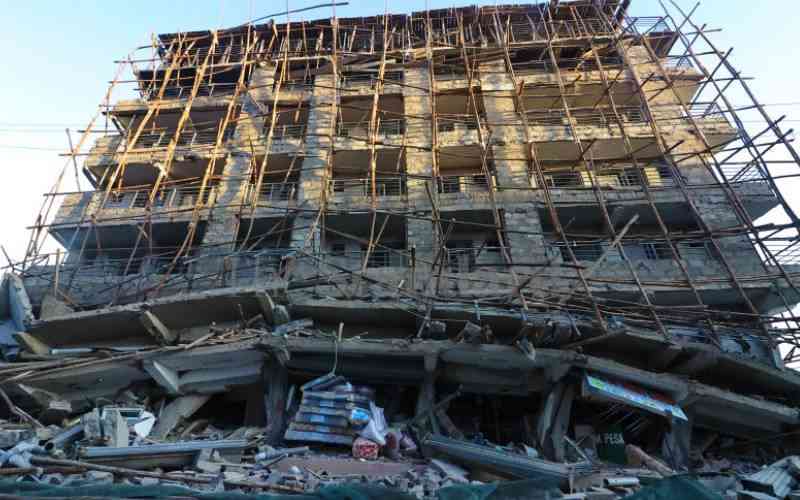×
The Standard e-Paper
Kenya’s Boldest Voice

The Nairobi Metropolitan zone has seen enormous growth in real estate to accommodate a fast-growing population. This is due to rapid urbanisation and modern trends.
Unfortunately, some investors take shortcuts to cut down building costs and speed up construction works, leading to loss of lives and property occasioned by the collapse of buildings. This is unacceptable and must be addressed urgently.